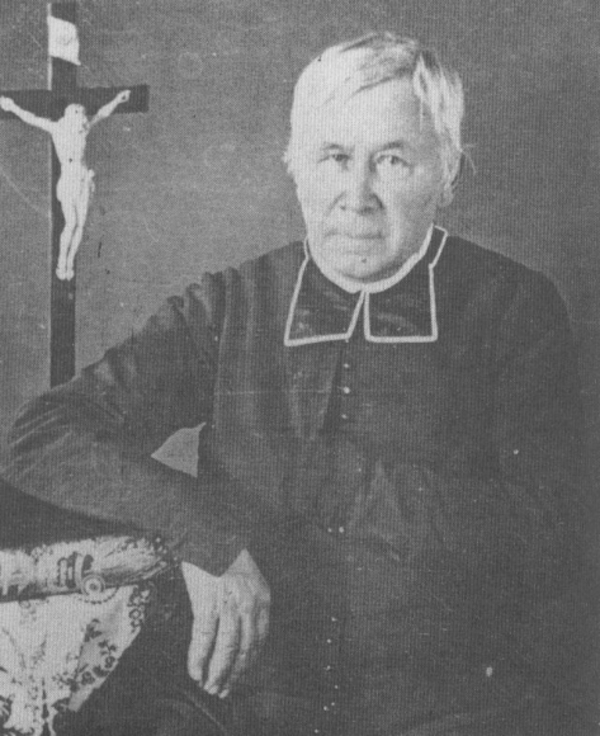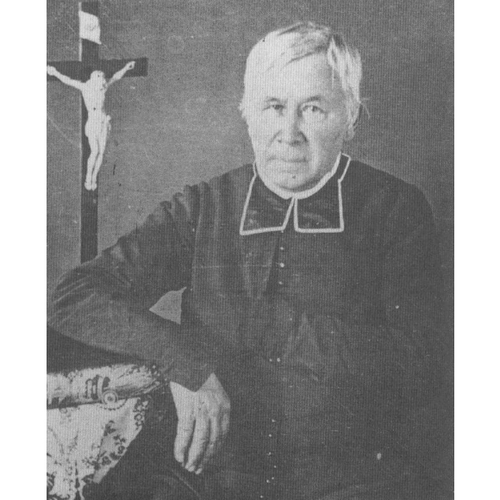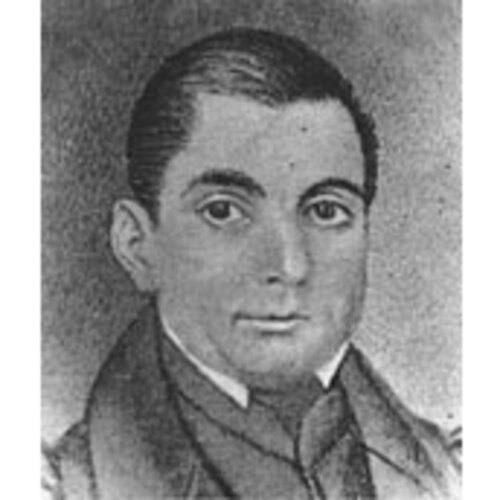
Source: Link
PARANT (Parent), ANTOINE, Roman Catholic priest and seminary administrator; b. 27 Nov. 1785 at Quebec, son of Antoine Parant and Geneviève Bois; d. there 11 Feb. 1855.
Antoine Parant was a brilliant student at the Petit Séminaire de Québec from 1796 to 1804, and then for four years at the Grand Séminaire, where at the same time he taught the rudiments of Latin. He was ordained in the cathedral on 12 March 1808 by Joseph-Octave Plessis*, the bishop of Quebec, and was immediately sent to lend assistance at the new Séminaire de Nicolet. Writing to Jean Raimbault*, the superior of this institution, on the day of Parant’s ordination, the bishop assured him that he would find the abbé an “intelligent, pious, modest, studious young man” but “perhaps overly diffident.” In a second letter dated 28 March, Plessis added, “I have deprived myself of an excellent ecclesiastic.” Before leaving Quebec, Parant had nevertheless applied for membership in the community of the Séminaire de Québec. The directors, who knew how valuable he was, lost no time in granting his request and on 25 May 1809, soon after his return from Nicolet, invited him to join the seminary’s council. Parant served first as a director of the Grand Séminaire and then became director-prefect (1810–12) and director (1810–17) of the Petit Séminaire. From 1817 until the end of his active life in 1849 he was alternately procurator and superior of the Petit Séminaire.
As Bishop Plessis had anticipated, Parant did not attract much comment and left few writings. He spent his entire life at the seminary and devoted all his talents to its administration. He seems to have left the seminary only once, in 1824. That year a committee of the House of Assembly, which included Louis Bourdages*, Andrew Stuart*, and Denis-Benjamin Viger*, was conducting an inquiry into the state of education in Lower Canada. Summoned to give testimony before the committee, Parant proposed that a system of primary schools be established under the direction and supervision of the fabriques and that the schools be financed directly by the funds each parish would be authorized to collect for their maintenance. This deposition was largely responsible for the assembly’s passing a bill that year to establish and endow elementary schools in the parishes (commonly called the fabrique schools act).
Parant was lucky to find within the ranks of his colleagues two exceptionally valuable collaborators: Jérôme Demers, who alternated with him as procurator and superior from 1824 to 1848, and John Holmes, a prefect of studies from 1830 to 1849. Under the impetus of these three educators, the Petit Séminaire reached a level of excellence which enabled it to found the Université Laval in 1852. Parant also shared with Demers in particular the supervision of construction work to enlarge the seminary. Undertaken to accommodate the growing number of pupils, this work was begun in 1823 and lasted for more than ten years. The wing and parlour of the Grand Séminaire were entirely rebuilt; the building of the Petit Séminaire looking onto the courtyard was enlarged, with a storey being added; and the wing of the procurator’s office was extended on the garden side. The new building was intended to provide accommodation for students of the Grand Séminaire as well.
In intellectual matters Parant helped to improve the program of studies at the Petit Séminaire. When he accepted the office of director-prefect in 1810 the curriculum was the same as in the previous century except for the addition of geography and history, which from 1808 had been taught as regular courses in all classes up to and including the fifth year (Belles-Lettres). In 1814, as prefect, Parant initiated the teaching of English for three hours a week starting in the fourth year (Versification). Later, as superior, he helped Holmes to introduce new subjects such as Greek in 1829, instrumental music in 1833, and drawing in 1835, and Demers to improve instruction in science. Étienne Parent* in Le Canadien never tired of praising the Petit Séminaire, and the memory of its educators, who made their mark on this period, remained alive for a long time. Joseph-Edmond Roy* wrote 50 years later: “The names Demers, Holmes, Parant, and Gingras [Louis Gingras*] mean nothing whatever to the new generations, but . . . we well know the extraordinary influence these men had on their contemporaries.”
Before his retirement Parant became a member of the Catholic Board of Examiners of the City of Quebec. After 1849 he also continued to sit as first assistant on the council of the seminary, and he took part in deliberations leading to the approval of the plan Louis-Jacques Casault* put forward to establish the Université Laval. In 1850 he became a member of the bishop of Quebec’s council, a post he retained until 1855, the year of his death.
ANQ-Q, CE1-1, 27 nov. 1785, 14 févr. 1855. ASQ, mss, 12–13; 431; 437: 363–64. Can., Prov. of, Statutes, 1846, c.27. L.C., Statutes, 1823–24, c.31. Le Séminaire de Québec: documents et biographies, Honorius Provost, édit. (Québec, 1964), 461. Allaire, Dictionnaire, 1: 415. P.-G. Roy, Fils de Québec, 3: 26. Tanguay, Répertoire, 171. L.-P. Audet, Le système scolaire, 3: 199–200, 215. André Labarrère-Paulé, Les laïques et la presse pédagogique au Canada français au XIXe siècle (Québec, 1963), 51, 147. Marc Lebel et al., Aspects de l’enseignement au petit séminaire de Québec (1765–1945) (Québec, 1968), 40–41. J.-E. Roy, Souvenirs d’une classe au séminaire de Québec, 1867–1877 (Lévis, Qué., 1905).
Cite This Article
Noël Baillargeon, “PARANT (Parent), ANTOINE,” in Dictionary of Canadian Biography, vol. 8, University of Toronto/Université Laval, 2003–, accessed December 31, 2025, https://www.biographi.ca/en/bio/parant_antoine_8E.html.
The citation above shows the format for footnotes and endnotes according to the Chicago manual of style (16th edition). Information to be used in other citation formats:
| Permalink: | https://www.biographi.ca/en/bio/parant_antoine_8E.html |
| Author of Article: | Noël Baillargeon |
| Title of Article: | PARANT (Parent), ANTOINE |
| Publication Name: | Dictionary of Canadian Biography, vol. 8 |
| Publisher: | University of Toronto/Université Laval |
| Year of publication: | 1985 |
| Year of revision: | 1985 |
| Access Date: | December 31, 2025 |




